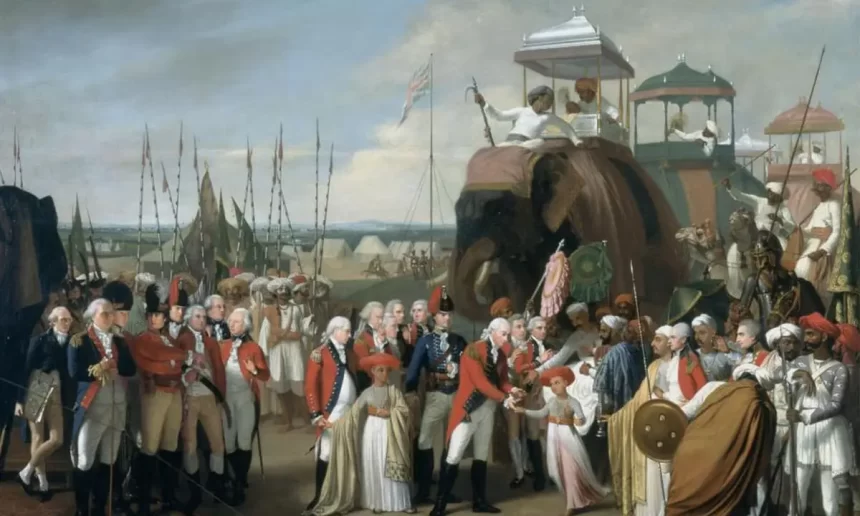Britain drained a total of nearly $45 trillion from India during the period 1765 to 1938. A shocking study by renowned economist Utsa Patnaik reveals. However, he drew detailed data from nearly two centuries of tax and trade by the empire. Patnaik’s work makes clear that Britain didn’t develop India. Quite the contrary, India developed Britain.
For perspective, $45 trillion is 17 times more than the total annual Gross Domestic Product (GDP) of the United Kingdom (UK) today. How did this come about? It happened through the trade system. But, it was commonly told in the stories that the colonial era of Britain in India was of no economic benefit to the Kingdom. Prior to the colonial period (during the Mughal rule), Britain bought goods like textiles and rice from Indian producers and paid for them in the normal way – mostly with silver – as they did with any other country.
But something changed in 1765, shortly after the East India Company to control of the subcontinent and established a monopoly over Indian trade. Here is how it worked. The East India Company began collecting taxes in India, and then cleverly used a portion of those revenues (about a third) to fund the purchase of Indian goods for British use.
READ MORE: Fascinating History of Tea: From Ancient China to Global Popularity
In other words, instead of paying for Indian goods out of their pocket, British traders acquired them for free, ‘buying’ from peasants and weavers using money that had just been taken from them. After the British Raj took over in 1858 colonizers added a special need twist to the tax-and-buy system.
As the East India Company’s monopoly broke down, Indian producers were allowed to export their goods directly to other countries. But Britain made sure that the payments for those goods nonetheless ended up in London. How did this work?
Basically, anyone who wanted to buy goods from India would do so using special council bills – a unique paper currency issued only by the British crown. And the only way to get those bills was to buy them from London with gold or silver. So traders would pay London in Gold to get the bills, and then use the bills to pay Indian producers.
When Indians cashed the bills in at the local colonial office, they were paid in rupees out of tax revenues – money that had just been collected from them. So, once again, they were not in fact paid at all; they were defrauded.





